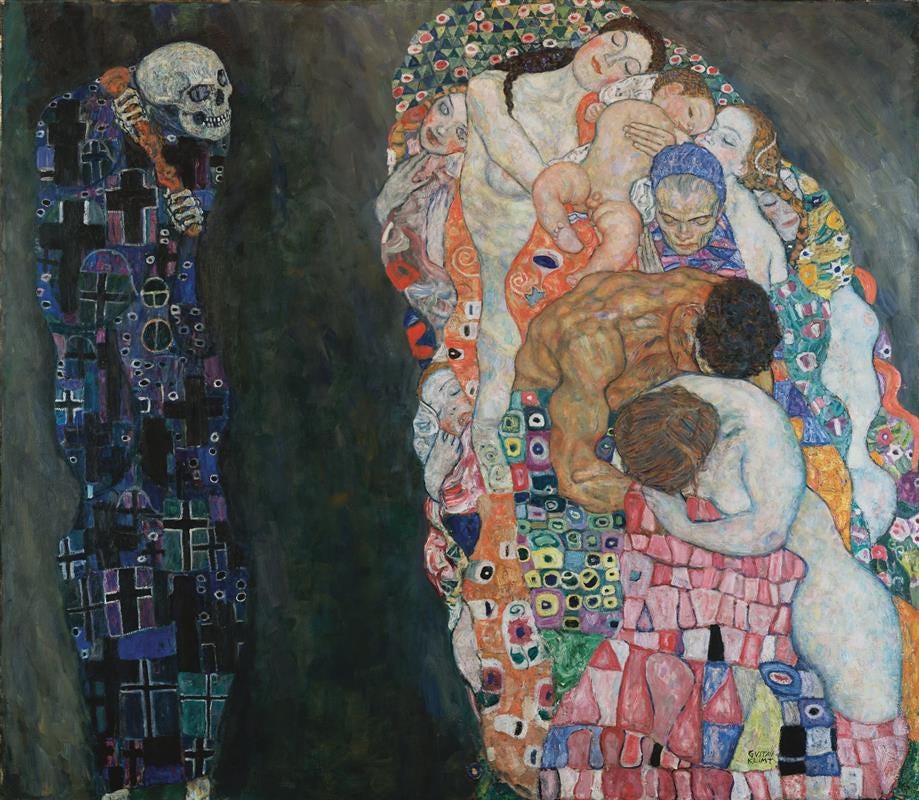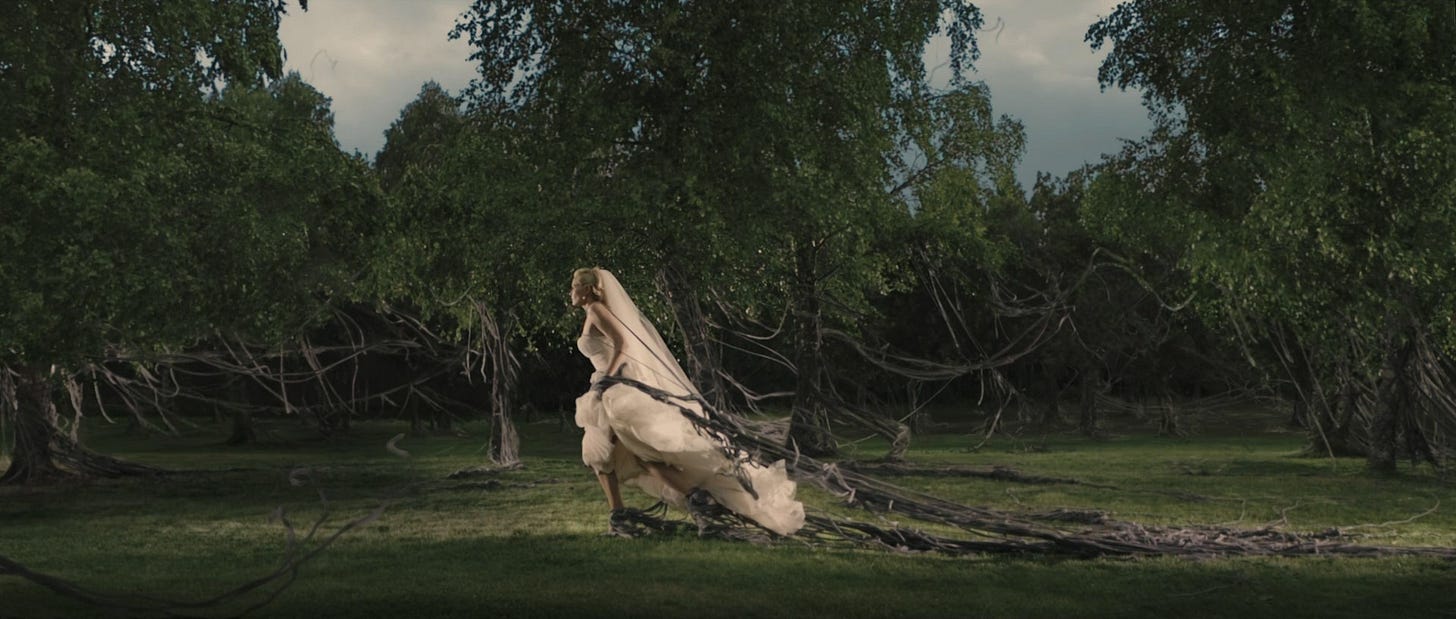forever and never
two concepts that terrify us
Some people find comfort in the words “'til death do us part,” while others balk at the prospect of committing to someone forever. I think this variance can be explained by differences in personality and childhood experience (how you were raised, what kind of relationship your parents had, whether they were separated/divorced, etc.). If we look at the big five personality traits, people who score high in conscientiousness might like the idea of a stable, monogamous, “forever partnership,” while those who score high in openness might find it stifling. Both can exhibit some neuroticism (don’t we all?).
There was a time I wanted to get married because I wanted emotional security. Marriage, I thought, would provide me the assurance that my partner was committed, that he wasn’t going to abandon me. Obviously, marriage doesn’t guarantee security. Plenty of people stray in marriages. Yet, plenty of people marry under the illusion that it “secures” their relationship. Marriage is like a safety blanket: it provides the feeling of security but not actual security. Actual security is built by both partners over time. The realization that what I valued—trust, emotional safety—didn’t automatically come with marriage liberated me from the belief that I had to get married.
In Lars von Trier’s 2011 movie Melancholia, the two sisters, Justine and Claire, are ruled by opposing fears. In the first half of the movie, Justine’s elaborate wedding triggers her depression. She goes through the motions (“I smile and smile and smile”) but clearly wants none of it. She describes a nightmare in which she’s trudging through “gray, wooly yarn,” and it’s “heavy to drag along.” Having to play the role of bride and wife, to adhere to tradition and institution, is a burden. She’s drawn to chaos and negative energy, to the destruction and death heralded by the approaching planet Melancholia.
Claire, on the other hand, is happy to play her roles as sister, wife, and mother. She likes order, punctuality, predictability. What terrifies her is the prospect of losing everything she has when the rogue planet hits Earth. Where Justine, the runaway bride, is terrified of being stuck in a state of “forever,” Claire is terrified of the abyss of “never”: never again holding her son, never again making breakfast on her expansive patio, never again being the person she is in this life.
Perhaps what makes “forever” and “never” terrifying is that we can’t actually experience them. Ultimately, it is the unknowability of the future that frightens us, and more specifically, who (or what) we will become. The prospect of dying is frightening for this reason, but so is the prospect of living forever: what becomes of us in this forever state? Our sense of self is defined as much by our limitations as our capabilities. When such a fundamental limitation (mortality) is removed, we lose our sense of self.
We can’t experience “forever” and “never,” but we have approximations for them: marriage is meant to be forever, and losing a loved one—including breakups—gives us the bittersweet taste of “never.” The person who fears marriage worries about the future. All sorts of things can happen both within and outside of herself. How can she guarantee that she’ll love and cherish this one person forever? The person who fears breakups also worries about the future. He saw the future as a continuation of his life with this person in the present, and suddenly, that future is gone, and he’s tossed into the abyss of the unknown.
Our fear of forever and never is what makes trapdoor decisions so difficult. A trapdoor decision is one that’s irreversible and whose potential negative consequences are severe. Opening a trapdoor means other doors close forever. These decisions include to marry or not to marry, to break up or not to break up, to have a child or not to have a child. Our inability to know ourselves completely, especially our future selves, makes the margin of error great. We think that if we make the wrong decision, we’ll regret it forever.
But another way to look at a trapdoor decision is via the old cliché: when one door closes, another opens. We’re limited in our ability to perceive future possibilities because so much of what we know—and the foundation of our decision-making—is mired in the present and the past. Even if you were to regret a decision you made, you wouldn’t be locked into your misery forever (although your present self thinks you will be). You might not be able to go back and undo the decision, but you can move forward and build on top of it to get to somewhere completely new (and better).
In improv, there’s the well-known concept of “yes and,” which is basically taking what you get and working with it. You build on top of what’s been said or done. And if one actor makes a mistake, everyone on stage works with it to create something new instead of sweeping it under the rug and pretending it never happened.
I’m not saying that life-altering decisions should be made lightly. They should be given careful deliberation. What I’m saying is we shouldn’t let our fear of forever and never paralyze us. Nothing is as permanent as we think it is. From any given point, we have the creative resources to find new paths forward, to access new states of mind and ways of being. It’s a fallacy to think that our future happiness depends on whether we’ve made the right decision. Often, there is no right decision, and rarely does our happiness depend on a single outcome.



